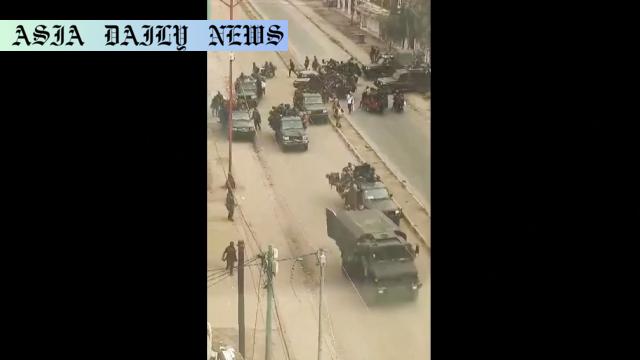Conflict: Fighting continues in eastern DR Congo city with rising concerns over regional stability and humanitarian crises.
Conflict persists in eastern DR Congo, involving M23 rebels and government forces.
UN reports severe humanitarian challenges including hospital overloads and crimes such as looting and rape.
Protests erupt in Kinshasa targeting various embassies over perceived foreign backing of the rebels.
Fears grow that the violence could escalate into a larger regional conflict.

Overview of the Situation
The ongoing conflict in the eastern Democratic Republic of the Congo (DR Congo) involves fierce clashes between government forces and the M23 rebel group, which is reportedly backed by Rwanda. The escalation of violence has brought devastation to the region, particularly in the city of Goma, a critical urban area in eastern DR Congo. On Monday, M23 claimed control of the city, intensifying struggles for dominion over strategic zones. The taken airport further underscores the rebels’ advance, while the Congolese military and allied militias continue their resistance.
Humanitarian Crisis
The United Nations has expressed grave concern over the deteriorating humanitarian conditions. Reports indicate overwhelmed hospitals struggling to treat an influx of wounded victims. Additionally, alarming reports of looting and rape have surfaced, aggravating the plight of civilians caught in the crossfire. These events punctuate a wider humanitarian crisis that has plagued the region consistently due to prolonged conflict and instability.
Protests and Political Unrest
Meanwhile, the capital city Kinshasa has erupted in protests, as citizens voice their frustration and fear over the escalating violence. Protestors have targeted Rwandan embassies, reflecting Congo’s widespread suspicion of Rwanda’s involvement backing the M23. These protests took an aggressive turn, with the destruction of security systems and burning of tires, amplifying tensions between the two nations.
Growing Regional Tensions
This latest wave of violence not only threatens DR Congo but has raised fears of a larger regional conflict. The eastern regions of DR Congo have had a tumultuous history marred by insurgencies and unrest. The alleged involvement of Rwanda exacerbates an already volatile situation, leading to regional and international scrutiny over the conflict.
Conclusion and Call for Action
It is evident that concerted efforts by the international community are necessary to mediate and prevent the crisis from spiraling further. Stakeholders must address both the immediate humanitarian situation and the underlying political complexities. The current conflict threatens not just DR Congo but regional stability, calling for urgent action to prevent further devastation.
Commentary
Understanding the Implications
The unfolding conflict in DR Congo is yet another heart-wrenching example of the consequences of prolonged instability and poor governance in fragile states. The staggering number of lives impacted by displacement, violence, and trauma underscores the urgent need for a peace-oriented approach to conflict resolution in the region. It is clear that these disputes have deep-rooted historical and political causes, and thus necessitate thoughtful, long-term strategies to ensure sustainable peace.
Regional and Global Responsibility
The reported involvement of Rwanda in this conflict highlights the interconnected nature of modern geopolitics. DR Congo’s concerns over sovereignty are valid and must be addressed diplomatically. However, the broader international community also bears responsibility for intervening in ways that prioritize humanitarian efforts and conflict resolution. Ignoring the current crisis might lead not only to worsening conditions in DR Congo but could also destabilize neighboring regions.
An Urgent Call for Action
Civilians continue to bear the brunt of these conflicts, and the international community must collectively act to ease their suffering. This means providing more aid, funding hospitals, and ensuring peace efforts are backed by political will. Justice for atrocities such as looting and rape should also be prioritized to rebuild trust among the people. Lastly, the voices of the Congolese population should be amplified and respected in shaping their nation’s future.



